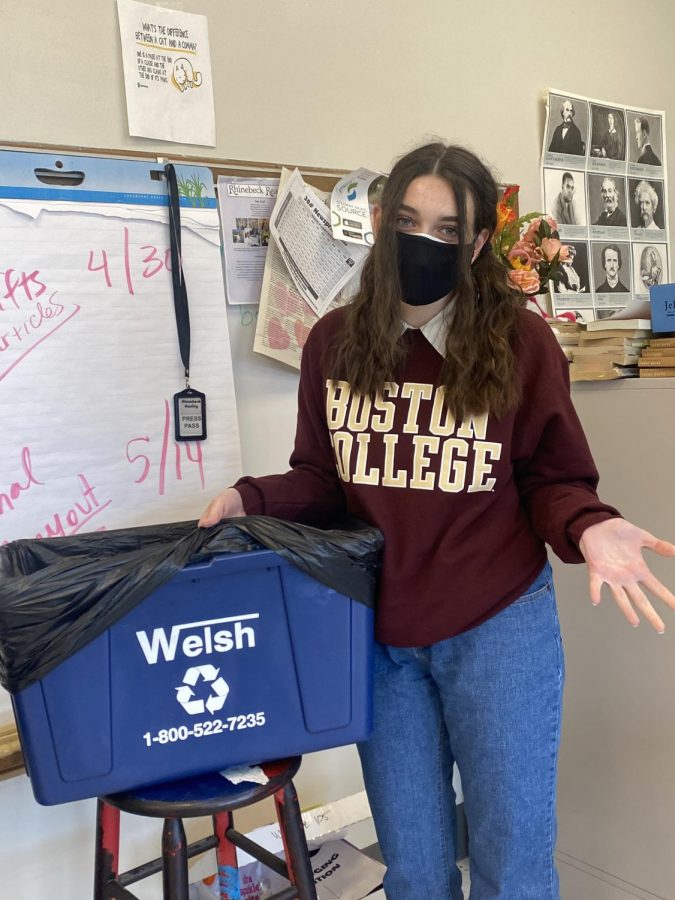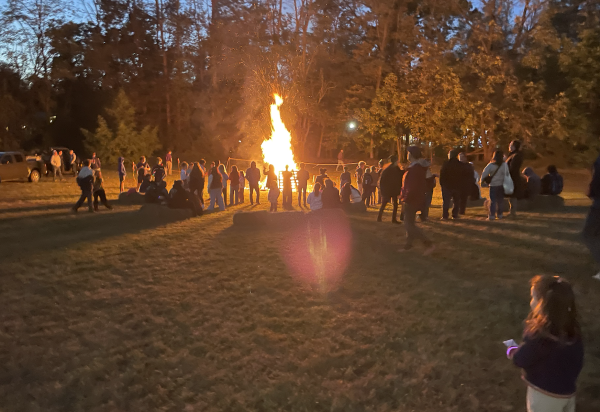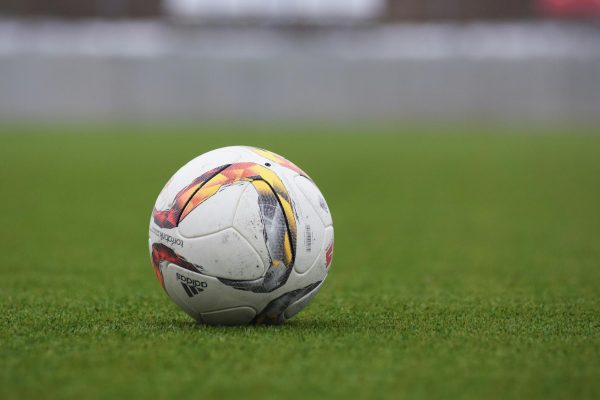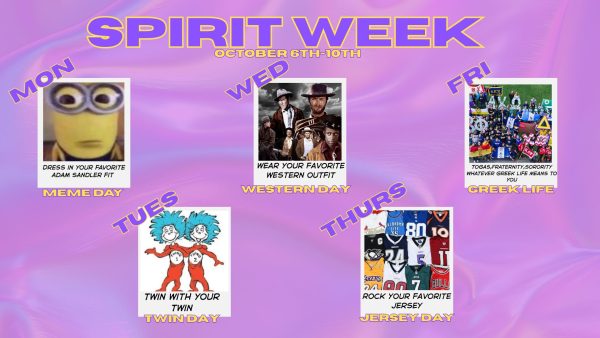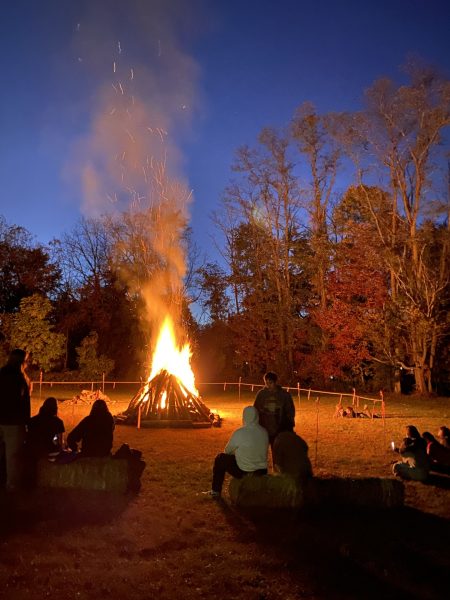RCSD Maintains Eco-Friendly Focus as Climate Takes Backseat to COVID
In the front of a classroom, a recycling box lies untouched. Or the recycling bin is full of paper copies just waiting to hurt our environment. Now there are many ways waste could be cut down on or recycling improved. Here’s what Rhinebeck is doing about it.
On April 14th, RCSD students, faculty, and administrators participated in a Youth Summit hosted by the new Dutchess BOCES Center for Sustainability and Climate Education.
The event brought together “diverse perspectives from across the county and connect[ed] the energy of our youth around matters of sustainability and climate,” said Albert Cousins, RCSD Superintendent, in a recent visit to our Media Communications class.
As the first district to join the collaboration, RCSD has demonstrated its commitment to a sustainable future.
“This is a critical area of importance, an area of focus I heard loudly and clearly when I first came to Rhinebeck to meet some of you in early March [2020]. ” said Cousins.
Workshops were offered via Zoom by Summit partners Omega, The Cloud Institute, and the Ashokan Center, as well as former RCSD superintendent Joseph Phelan, Senior Fellow at Sustainable Hudson Valley, and Dorna Schroeter, Biomimicry Mentor and Sustainability educator and author.
The first step our district will take is a strengths assessment, created by students, teachers and faculty through the Center of Sustainability and Climate Education.
Susannah Renzi, one of the teachers staffed in this Assessment, spoke to us about her ties to sustainability. “I studied environmental science in college, and it’s been something that I’ve been passionate about my life.”
The Strengths Assessment will review what RHS has already done that’s sustainable and will show what the school could change.
With this is new arrangement, it’s expected that next year an immense number of changes will be made that will lower our school’s effect on the environment.
Although this new collaboration is something to be celebrated, students and staff at RHS know that more work needs to be done.
COVID Presents Challenges
COVID Presents Challenges In his Best in SNO (School Newspapers Online) award-winning article last year “We’re Rubbish at Recycling,” Rhinebeck Reality’s Jonah Carleton revealed that our school’s use of convenient single stream recycling comes at a cost.
It’s easy to put wrong materials into the stream, which contaminates the whole bin. Dirty recyclables go to landfills, and re-processors only focus on the most profitable materials.
Jonah’s article urged our school to improve, but have we?
Here Are The Latest Updates
We hope our article can give our readers some updates. It’s no secret that recycling in the US has become a complex issue, and in the past year COVID has taken over our lives and priorities.
Although people might think they are doing their part by putting items in recycling bins, much of this isn’t getting reused or recycled.
In her article “Recycling in the U.S. Is Broken. How Do We Fix It?,” Renee Cho of the Columbia University Climate School states that on average in 2017 Americans produced 4.51 pounds of garbage a day (up from 2.68 pounds in 1960).
With the loss of the Chinese market for plastic, the U.S. recycling industry was turned upside down. U.S. processing facilities and cities have either had to pay more to recycle or simply throw out the waste. And recycling often competes for funding with education and policing.
The problem is that we make more plastic than we recycle. Data from the EPA shows that the U.S actually recycles less than 10% of its plastic.
Legislation can help, but cannot be the only solution. NY recently passed laws to reduce plastic bag waste and container litter. But are these legislative acts enough?
The article “COVID-19 Is Laying Waste to Many US Recycling Programs” written by Brian J. Love and Julie Rieland describes the recent changes to recycling practices since the pandemic.
Our maxed effort on cleanliness creates hesitation for many people to reuse materials or buy second-hand. Buying everything new has made our waste levels go up during the Covid pandemic.
Greater amounts of trash are being produced because of the longer time people are at home due to Covid. Restaurants are also struggling to survive under restrictions, causing more takeout packaging waste. Recycling and sorting is a very hands-on task, so many workers and collection companies have had safety concerns. Collection stations have also been put on pause, which is hurting our recycling.
Despite these setbacks, have there been any waste-related silver linings to come from this pandemic?
2020-2021 at RCSD: Silver Linings? Or More Waste?
Despite the impact COVID has had on our lives and on the environment, our district is still trying to get better at recycling and managing our waste.
Superintendent Cousins states that there have always been guidelines for encouraging students to develop eco-friendly dispositions and good habits, but there have never been any strict rules from the NY State DOE for recycling in school buildings.
“It only takes an extra moment” to recycle properly, Davenport said.
COVID has required us to make many changes to our habits this year. With the emergence of remote learning, it’s safe to assume paper waste at school is lower than most years.
“I don’t make anywhere near the number of copies that I used to, and that’s true for the majority of the teachers,” Chantal Collins, 5th-grade teacher at CLS says.
Collins states that most of these “silver linings” have been overshadowed by the use of disposable masks and lunches encased in plastic.
The waste we don’t create with paper has been made up somewhere else. For example, the “safety” paper we use on desks only has use for one day and is then thrown in the trash.
Practices like this should be cut down, according to Superintendent Cousins, since there is no longer evidence that backs up the use of this paper.
So what can you do?
Marian Decker, Co-President of the RHS Environmental Club says more people are serious about recycling than before, but not serious enough.
“I think it’s a convenience thing. They might… care about the environment, but it takes more time to find a recycling bin or…rinse out your bottle.”
So what can you do to help?
Buy less plastic.Buying items with less packaging is key.
Reuse. Try buying clothes at an online consignment store like ThredUP. Or host a clothing swap with friends. Using rechargeable batteries can also be a great switch out.
“Collecting yogurt cups and using them as paint containers is a good example of where you can do your part,” said Decker.
Reusable grocery bags can save you some money at the supermarket and can also help our recycling problem.
“Make small switches because it can be hard for people to make huge differences, especially if it’s not something you’ve grown up doing,” Eleanor Butler.
Get involved. As a student, you could join the Environmental Club in our own school or a national organization such as the Sunrise Movement.
Click here for more info on the Sunrise Movement.
Look out for future opportunities to participate in our new partnership with the BOCES Center for Sustainability.
Mr. Cousins encourages students to keep working hard.
“If you want something to change, you need to keep pushing for it,” Cousins said.
Our new collaboration with the Center for Sustainability will allow members of the school community, students, teachers to keep addressing concerns. The more we talk about the issue, the more change will be made

